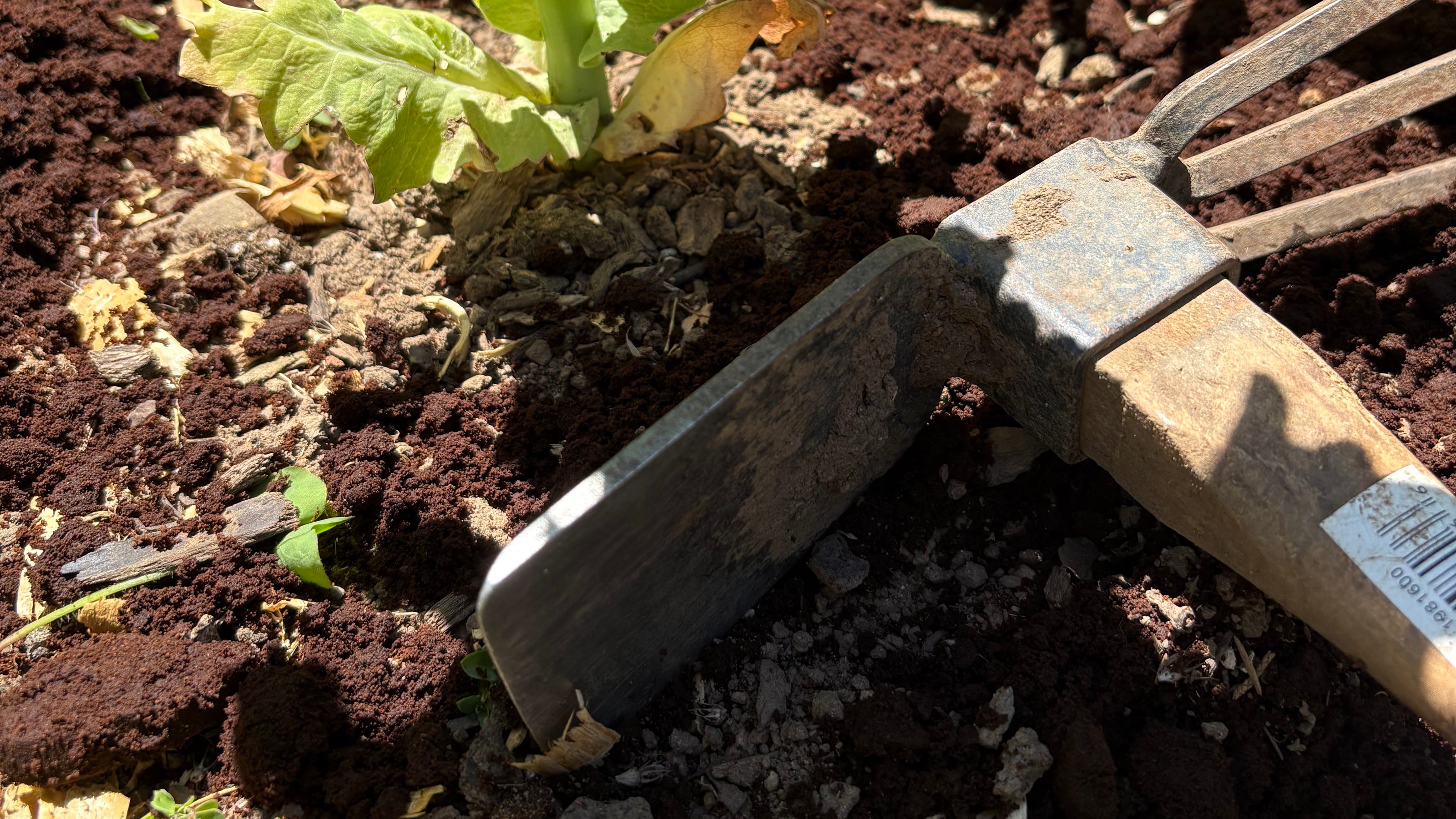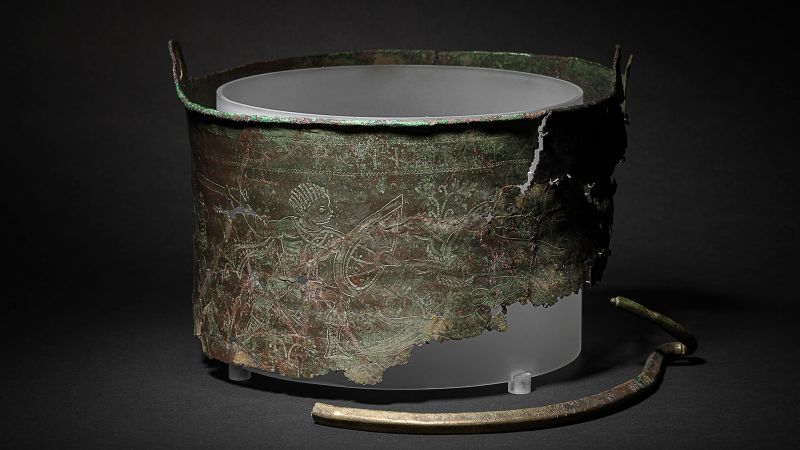Can Coffee Grounds Help My Plants Grow? A Cautious Approach

Welcome to your ultimate source for breaking news, trending updates, and in-depth stories from around the world. Whether it's politics, technology, entertainment, sports, or lifestyle, we bring you real-time updates that keep you informed and ahead of the curve.
Our team works tirelessly to ensure you never miss a moment. From the latest developments in global events to the most talked-about topics on social media, our news platform is designed to deliver accurate and timely information, all in one place.
Stay in the know and join thousands of readers who trust us for reliable, up-to-date content. Explore our expertly curated articles and dive deeper into the stories that matter to you. Visit Best Website now and be part of the conversation. Don't miss out on the headlines that shape our world!
Table of Contents
Can Coffee Grounds Help My Plants Grow? A Cautious Approach
Are you a coffee lover with a green thumb? You might have heard that used coffee grounds can be a fantastic addition to your garden. While the idea of turning your morning brew's leftovers into plant food sounds appealing, it's crucial to approach this with caution. This article explores the benefits and drawbacks of using coffee grounds as fertilizer, helping you decide if this popular gardening hack is right for your plants.
The Allure of Coffee Grounds: A Natural Fertilizer?
Coffee grounds boast several attractive qualities for gardeners: they're readily available, free (if you brew your own coffee!), and considered a natural, organic amendment. They contain nitrogen, phosphorus, and potassium – essential nutrients for plant growth. Additionally, they improve soil structure, adding organic matter that enhances drainage and aeration. This can be particularly beneficial for heavy clay soils.
The Positives: What Coffee Grounds Can Do for Your Plants
- Nutrient Boost: As mentioned, coffee grounds offer a slow-release source of nitrogen, crucial for leafy green growth. However, the nutrient content isn't overwhelmingly high, so don't expect miraculous results.
- Soil Improvement: The organic matter in coffee grounds improves soil structure, creating a more hospitable environment for roots to thrive. This leads to better water retention and aeration.
- Soil pH Adjustment: Coffee grounds are slightly acidic (pH around 6.0-6.8). This can be beneficial for acid-loving plants like blueberries, azaleas, and rhododendrons. However, for most plants, the impact on pH is minimal.
The Negatives: Potential Downsides of Using Coffee Grounds
- Nitrogen Lock: While nitrogen is beneficial, excessive amounts can lead to nitrogen lock, preventing plants from accessing other essential nutrients. This is especially true if you add large quantities of coffee grounds.
- Fungal Growth: Damp coffee grounds can attract fungus gnats and other pests, particularly in poorly drained soil. This can harm your plants and require extra pest control measures.
- Acidity Issues: While beneficial for acid-loving plants, the acidity of coffee grounds can harm plants that prefer neutral or alkaline soil. Always test your soil pH before incorporating coffee grounds.
- Unbalanced Nutrients: Coffee grounds lack essential micronutrients that plants require for healthy growth. They should be considered a soil amendment, not a complete fertilizer.
How to Use Coffee Grounds Safely and Effectively
If you decide to use coffee grounds, moderation is key. Start with small amounts, mixing them into the soil rather than piling them directly on top. Avoid using grounds from coffee that contains additives like sugar or creamer. Consider these tips:
- Composting: Composting coffee grounds with other organic materials like leaves and grass clippings creates a balanced and nutrient-rich soil amendment. This mitigates the risks associated with directly applying large amounts of coffee grounds.
- Small Amounts: Begin by incorporating a small amount into the soil around your plants, gradually increasing the quantity if needed.
- Monitor Your Plants: Closely observe your plants' growth and adjust your coffee ground usage accordingly. Look for signs of nutrient deficiencies or pest problems.
- Soil Testing: Regular soil testing is crucial to ensure your soil’s pH and nutrient levels remain balanced.
Conclusion: Proceed with Caution
Used coffee grounds can be a valuable addition to your gardening routine, but only when used responsibly and in moderation. By understanding both the benefits and potential drawbacks, and by following the tips above, you can harness the power of coffee grounds to support healthy plant growth without risking harm. Remember, a balanced approach, combined with regular soil monitoring, is the key to successful gardening. Happy gardening!

Thank you for visiting our website, your trusted source for the latest updates and in-depth coverage on Can Coffee Grounds Help My Plants Grow? A Cautious Approach. We're committed to keeping you informed with timely and accurate information to meet your curiosity and needs.
If you have any questions, suggestions, or feedback, we'd love to hear from you. Your insights are valuable to us and help us improve to serve you better. Feel free to reach out through our contact page.
Don't forget to bookmark our website and check back regularly for the latest headlines and trending topics. See you next time, and thank you for being part of our growing community!
Featured Posts
-
 Chilling Audio Ocean Gate Titan Subs Implosion Captured On Tape
May 26, 2025
Chilling Audio Ocean Gate Titan Subs Implosion Captured On Tape
May 26, 2025 -
 Philadelphia Phillies Aaron Nola Out With Ankle Sprain Mick Abels Mlb Debut Imminent
May 26, 2025
Philadelphia Phillies Aaron Nola Out With Ankle Sprain Mick Abels Mlb Debut Imminent
May 26, 2025 -
 Their Dc Love Story A Journey Across Thousands Of Miles Ended Too Soon
May 26, 2025
Their Dc Love Story A Journey Across Thousands Of Miles Ended Too Soon
May 26, 2025 -
 After Yankees Exit Giancarlo Stantons Potential Move To Seattle Mariners
May 26, 2025
After Yankees Exit Giancarlo Stantons Potential Move To Seattle Mariners
May 26, 2025 -
 Archaeologists Discover Contents Of Ancient Anglo Saxon Vessel
May 26, 2025
Archaeologists Discover Contents Of Ancient Anglo Saxon Vessel
May 26, 2025
Latest Posts
-
 1000 Increase In Sbet Stock Analyzing The Factors Driving Growth
May 31, 2025
1000 Increase In Sbet Stock Analyzing The Factors Driving Growth
May 31, 2025 -
 Ukraine Races To Build Drone Defense System Ahead Of Expected Russian Assault
May 31, 2025
Ukraine Races To Build Drone Defense System Ahead Of Expected Russian Assault
May 31, 2025 -
 Real Estate Report Significant Increase In Sellers Over Buyers
May 31, 2025
Real Estate Report Significant Increase In Sellers Over Buyers
May 31, 2025 -
 Us Open Under Scrutiny Ticket Presale Issues Spark Outrage
May 31, 2025
Us Open Under Scrutiny Ticket Presale Issues Spark Outrage
May 31, 2025 -
 New Proposal To Tackle Persistent Air Traffic Control Issues At Newark Airport
May 31, 2025
New Proposal To Tackle Persistent Air Traffic Control Issues At Newark Airport
May 31, 2025
